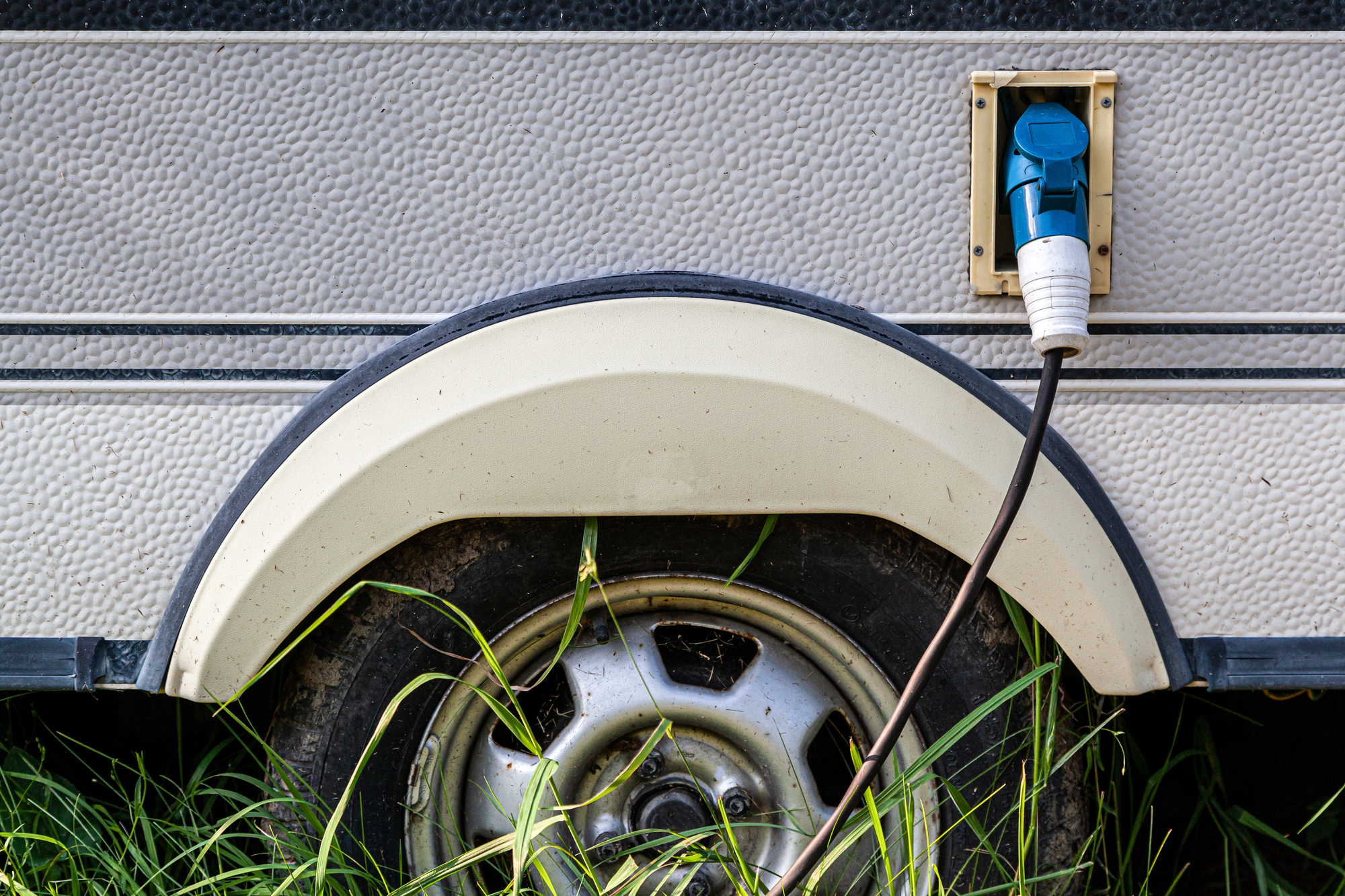
If you're an RV owner who stores your camper, trailer, or motorhome seasonally, you've probably faced this question: Does the surface I park on really matter?
The answer is yes, especially if you're storing long-term. The type of pad you use (gravel, dirt, or concrete) can directly impact the lifespan of your RV’s tires, the condition of your undercarriage, and even your seasonal maintenance costs.
Let’s break it down.
Your tires are under pressure 24/7. That stress is amplified when they’re exposed to moisture from below, sitting on uneven ground, or parked for months at a time without movement. That’s where pad material comes in. Dry rot is a common but costly problem for RV owners, especially when tires sit on damp or uneven ground for extended periods. It occurs when rubber breaks down due to exposure to moisture, temperature swings, and lack of movement—leading to cracking, brittleness, and ultimately, tire failure.
Uneven ground can put uneven pressure on your RV’s stabilizers, causing them to sink, shift, or strain under the weight of the rig. This not only makes your RV less stable but can also damage the stabilizers and jacks over time.
Many RV owners store their rigs on gravel or dirt pads due to convenience or cost. But these materials come with trade-offs.
Downsides of Gravel or Dirt Storage:
Moisture retention leads to dry rot and cracking in tires
Uneven ground causes strain on tires and suspension
Pests and weeds can find their way into undercarriages and compartments
Dirt splashes and dust accumulation mean more cleaning when it’s time to travel
Concrete is the gold standard for RV storage pads, for good reason. Concrete pads help prevent dry rot by creating a dry, stable surface that resists moisture and reduces wicking from below, unlike gravel or dirt which can trap water around the tire base. Concrete also provides a firm, level foundation for stabilizers, ensuring even weight distribution across all contact points. This minimizes stress on your suspension system and helps keep jacks and stabilizers from shifting or sinking into soft ground. With concrete, your RV stays supported and protected, reducing long-term wear and costly maintenance.
Benefits of Concrete for RV Storage:
Dry and stable surface that reduces tire dry rot and corrosion
Level parking that protects tires, jacks, and stabilizers
Smooth surface without sharp gravel or ruts
Cleaner environment with fewer pests and no mud
At AP Garages, all our enclosed RV storage units feature smooth, sealed concrete flooring designed specifically for long-term vehicle storage.
Enclosed, Insulated Storage
Your RV stays protected from rain, UV damage, and hail with secure indoor storage.
Concrete Pads in Every Unit
No gravel or shifting soil—just flat, reinforced concrete to support your rig and protect your tires.
Power-Ready Units
Maintain your battery charge or pre-cool your fridge before a trip. Select units include electrical outlets with 30 or 50 amp upgrades.
Security and 24/7 Access
Your RV is protected around the clock with camera surveillance and gated access—but you still get 24/7 access when it’s time to roll.
A full set of RV tires can cost $1,000–$3,000. Parking on concrete can extend their life significantly, delaying replacement and saving you money. Paying a little more each month for quality storage can save hundreds in tire replacements, water damage repairs, and cleaning supplies.
If you’re tired of cleaning off mud, replacing dry-rotted tires, or worrying about critters in your camper, it’s time to switch from gravel to concrete.